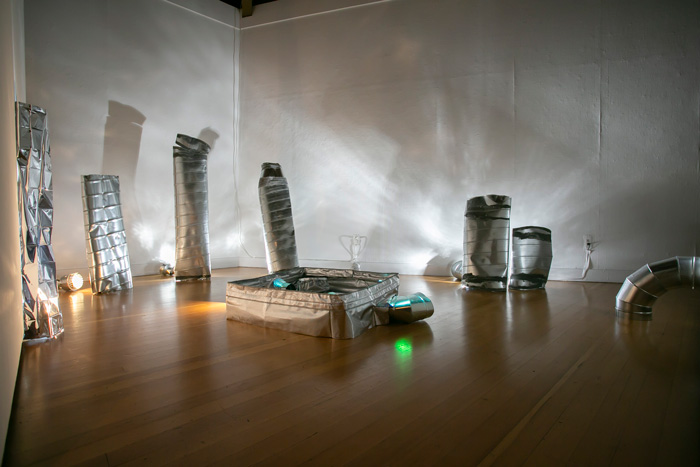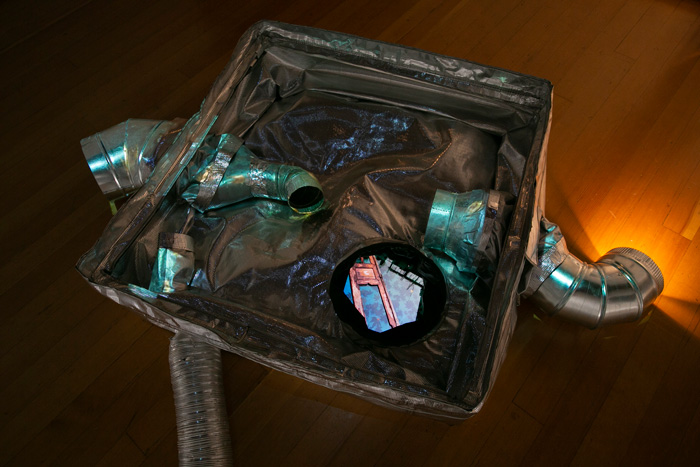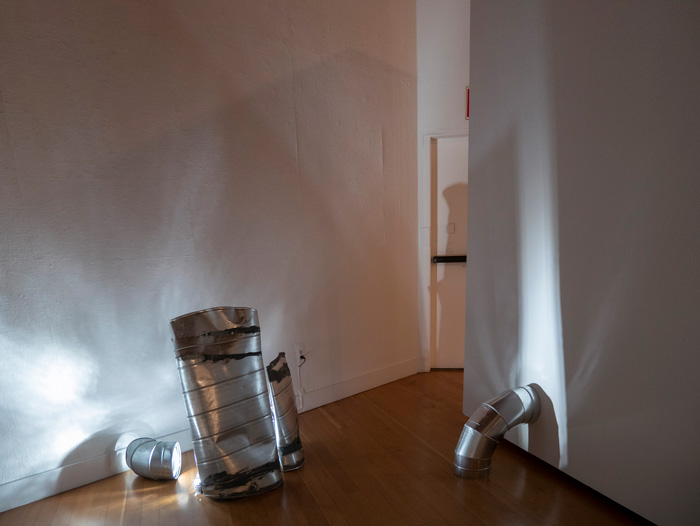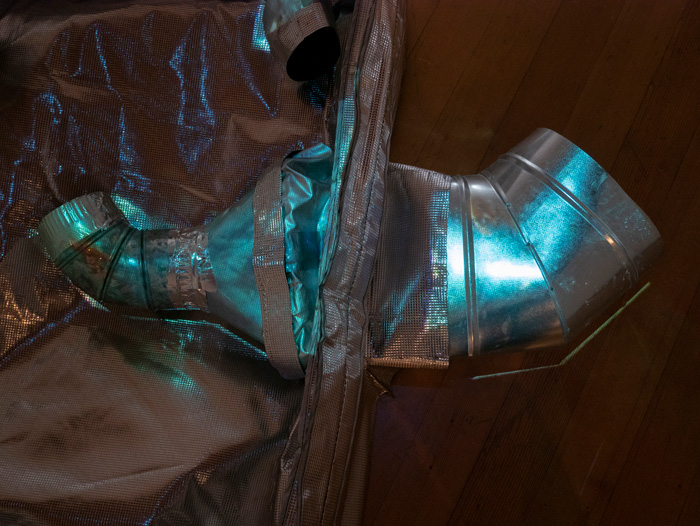



Qanat
In Persian culture, and around the world, city parks and gardens have been places of respite and reflection, to relax and commune. “Qanat” is a Persian word describing the ancient system of underground tunnels in the Middle East. Qanats were important factors that determined where people lived. The installation (of the same name) imagines the future of urban gardens, devoid of water. The video projection was recorded in Tehran, Iran (2017) during a visit when Zomorodina saw rapid growth in the city as high rise buildings took over gardens. She also noticed how the qanats were destroyed due to drought. Zomorodinia takes this idea, a very real and critical issue in climate change, and brings it almost to an absurd conclusion. Yet if we look at the cumulative effects of urbanism on the destruction of local ecosystems, native plants and animal life, this dystopian view is not so absurd. This futuristic “garden” not-so-quietly alludes to the perils of progress, but also asks: What will these spaces of respite be like with declining natural resources? Where is the limit to imposed industrial infrastructure? Environmental rehabilitation, if only for upgraded water systems in urban centers, is crucial to the health of our urban social landscapes.